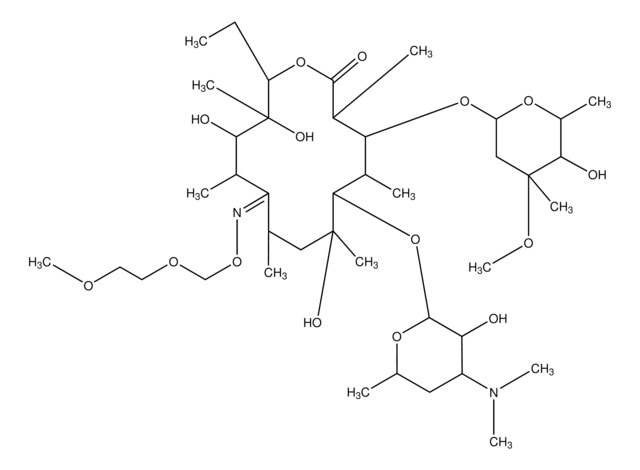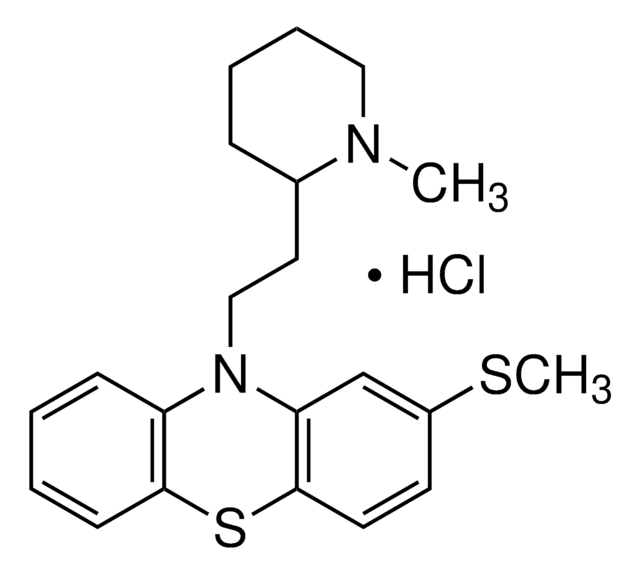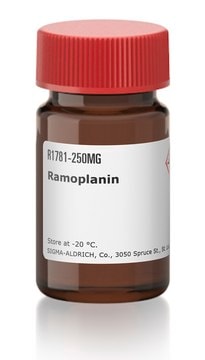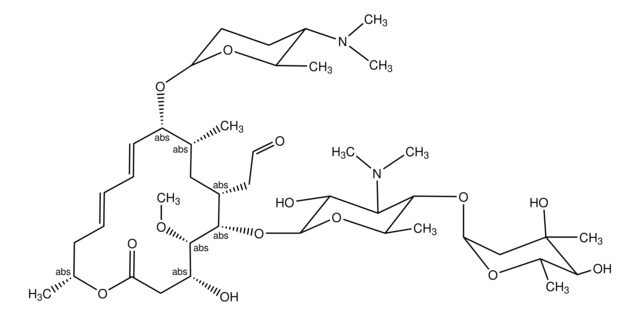R4393
Roxithromycin
95.0-102.0% (HPLC)
Synonym(s):
Erythromycin 9-(-O-[2-methoxyethoxy]methyloxime)
About This Item
Recommended Products
Assay
95.0-102.0% (HPLC)
form
powder or crystals
solubility
chloroform: soluble 10 mg/mL
antibiotic activity spectrum
Gram-negative bacteria
Gram-positive bacteria
Mode of action
protein synthesis | interferes
storage temp.
2-8°C
SMILES string
CCC1OC(=O)C(C)C(OC2CC(C)(OC)C(O)C(C)O2)C(C)C(OC3OC(C)CC(C3O)N(C)C)C(C)(O)CC(C)C(=N/OCOCCOC)\C(C)C(O)C1(C)O
InChI
1S/C41H76N2O15/c1-15-29-41(10,49)34(45)24(4)31(42-53-21-52-17-16-50-13)22(2)19-39(8,48)36(58-38-32(44)28(43(11)12)18-23(3)54-38)25(5)33(26(6)37(47)56-29)57-30-20-40(9,51-14)35(46)27(7)55-30/h22-30,32-36,38,44-46,48-49H,15-21H2,1-14H3/b42-31+
InChI key
RXZBMPWDPOLZGW-FEMONOMJSA-N
Looking for similar products? Visit Product Comparison Guide
General description
Application
Biochem/physiol Actions
Packaging
Other Notes
Signal Word
Warning
Hazard Statements
Precautionary Statements
Hazard Classifications
Acute Tox. 4 Oral
Storage Class Code
11 - Combustible Solids
WGK
WGK 3
Flash Point(F)
Not applicable
Flash Point(C)
Not applicable
Personal Protective Equipment
Certificates of Analysis (COA)
Search for Certificates of Analysis (COA) by entering the products Lot/Batch Number. Lot and Batch Numbers can be found on a product’s label following the words ‘Lot’ or ‘Batch’.
Already Own This Product?
Find documentation for the products that you have recently purchased in the Document Library.
Customers Also Viewed
Our team of scientists has experience in all areas of research including Life Science, Material Science, Chemical Synthesis, Chromatography, Analytical and many others.
Contact Technical Service















